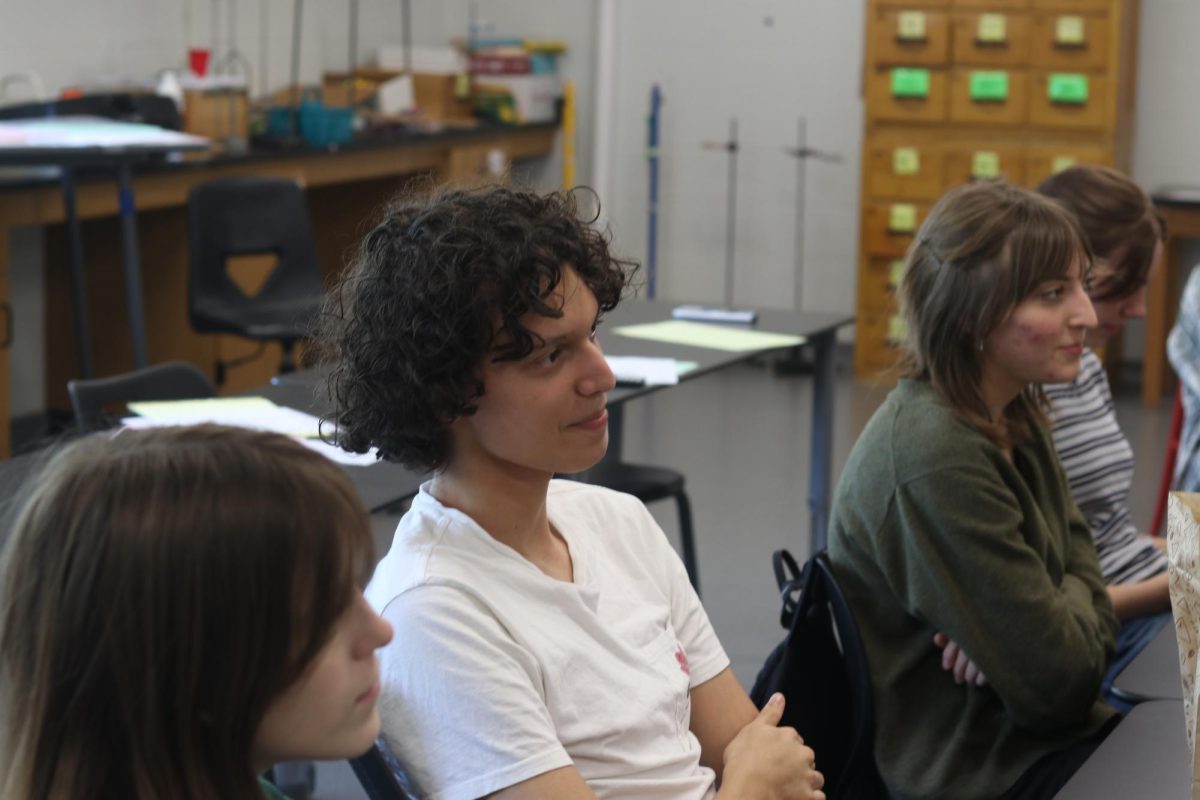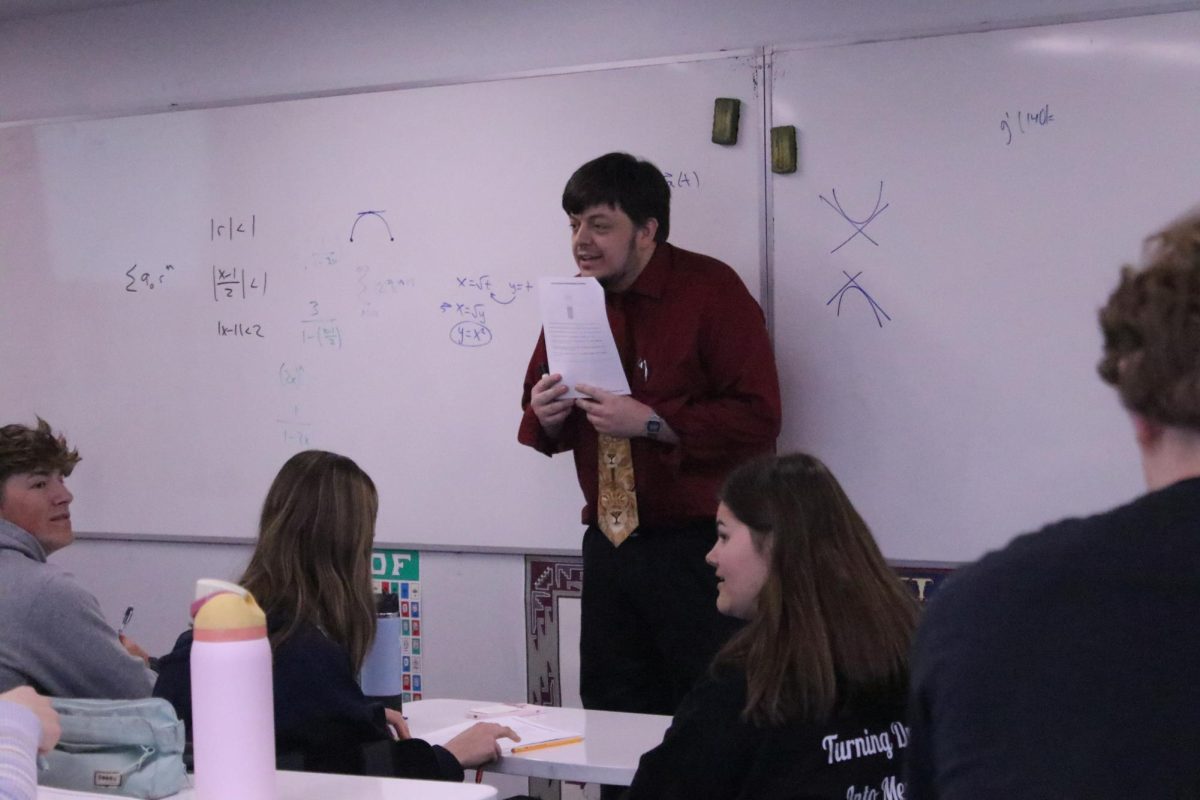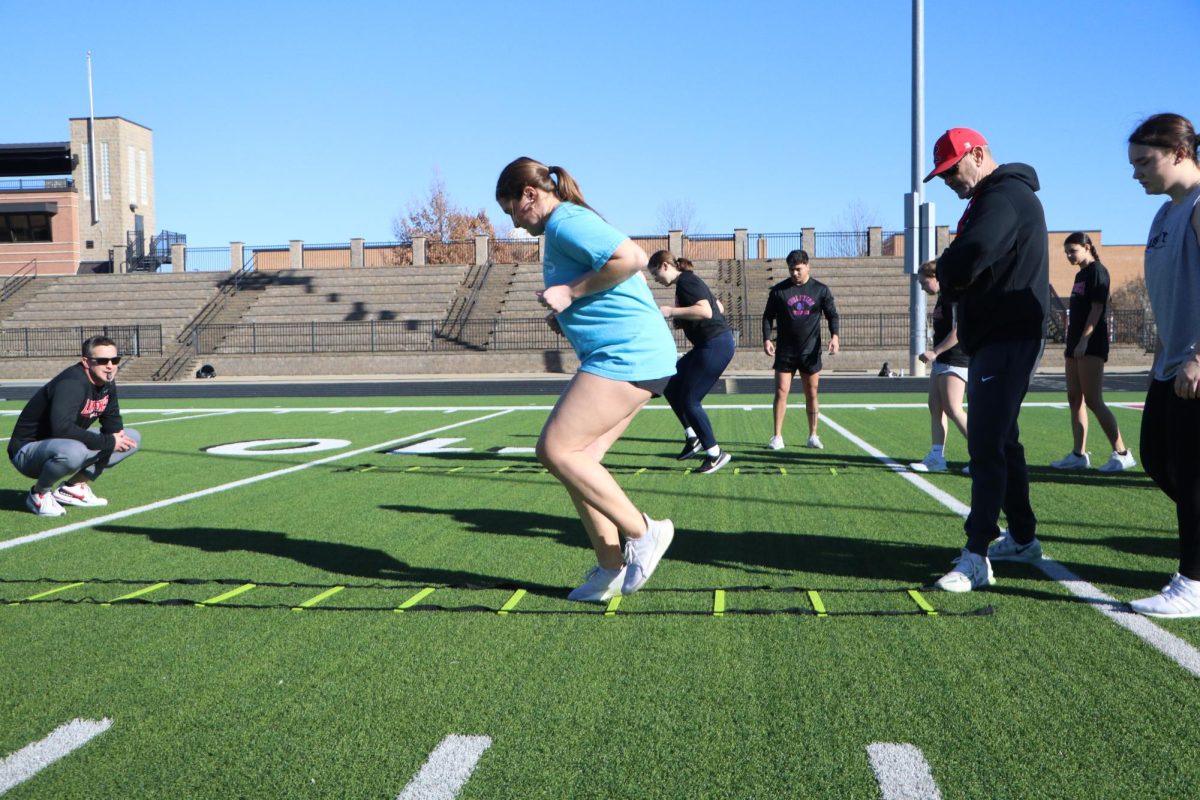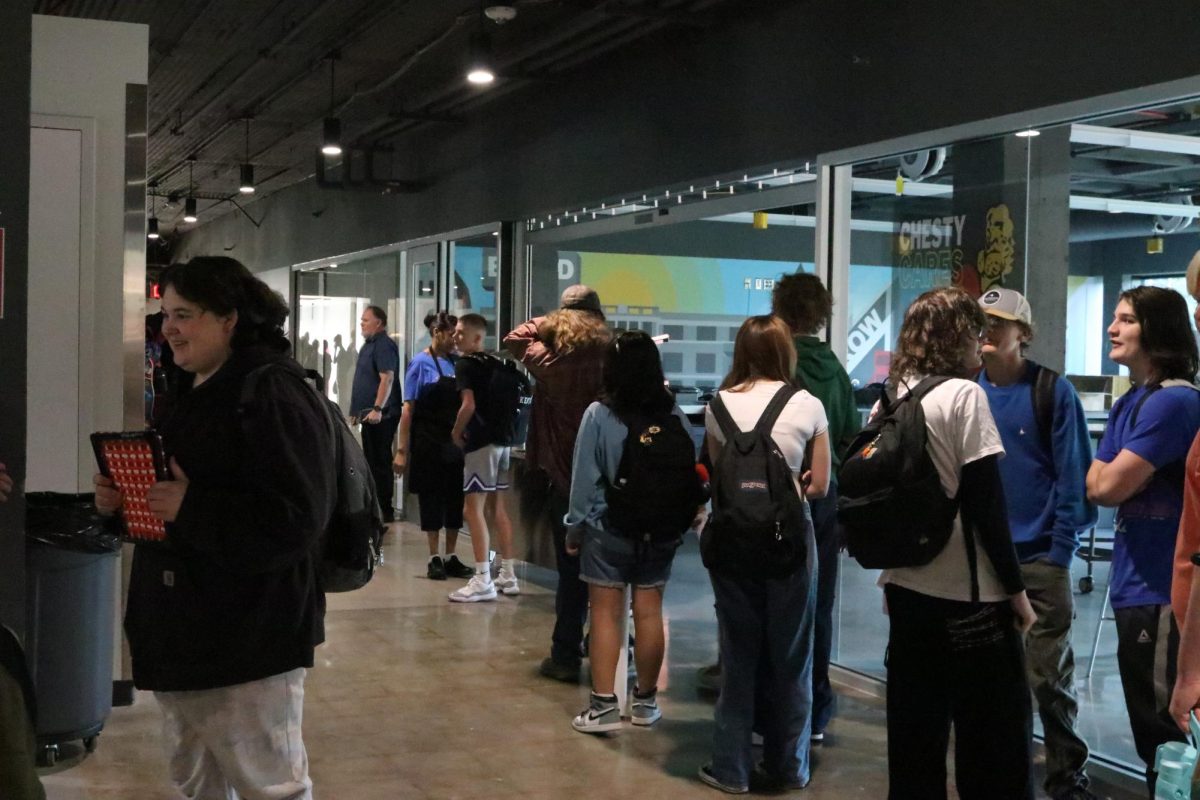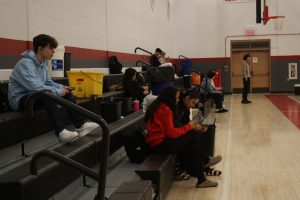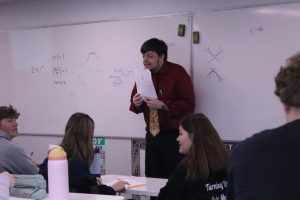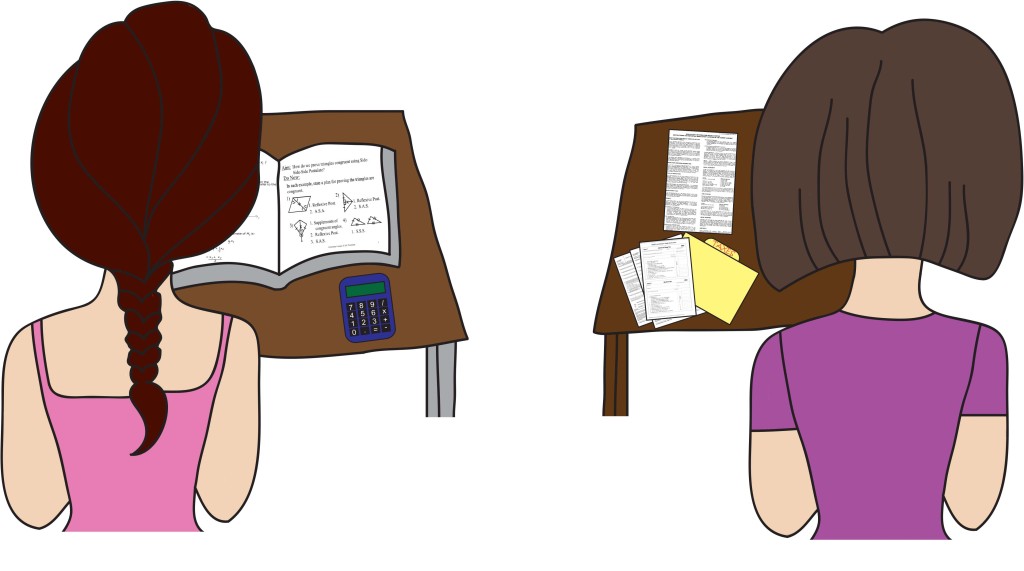
Graphic by Michaela Durner
By Nia Rutledge
After 11 years in public schools, I haven’t learned many practical skills I will need upon graduating high school and transitioning to adulthood.
I know how to dissect DNA from a strawberry, use graphing formulas and read the periodic table. However, I do not know how file taxes, hire a lawyer or what a credit report means.
The course curriculum should focus more on the foundations students need as a person rather than unapplied academics.
As is, students sit in class repeatedly learning equations until they are carved into their skulls. Students moan and groan about how they will never use the information their curriculum offers.
Teachers promise these equations will be useful, but they never back up their pleas. Not only should teachers present the information, but also explain how to apply it and why the information is important and useful.
When the only motivation to consume information is to pass a test, the student will not remember the information long-term.
The information is usually stored in short-term memory only to be forgotten in the upcoming months when the information is no longer useful.
Seniors Alex Ewy and Maddison LaTessa have also noticed these problems in the course curriculum.
“In architecture [class], I’ve learned more practical skills than in Pre-Calc,” Ewy said. “But, the core classes teach you basic skills that you need sometimes with your electives.”
In school, we need to know how to use the information we learn in real-life situations.
Some teachers try, but fail to truly tell us how to apply skills to real situations.
Often there are word problems in math courses. But, the chances of Sally having three marbles and Susie having eight more than Sally but four less than Jon and wanting to know how many Jon has is very low on the practicality scale.
It all just seems like a waste of time.
“I think core classes are good, because otherwise no one would take them,” Ewy said. “They wouldn’t learn anything.”
It is said that they teach us these skills in an attempt to make well-rounded, intelligent adults. If the goal of the curriculum is to construct more intelligent, well-rounded adults, then we should integrate courses on human rights, politics, racism and prejudice, international relations, and the effects of media in society.
We need more courses teaching these problems in our society to inform our young adults before they make the transition into adulthood and join in on these social constructs.
If we address these issues early then these issues may be solved or managed sooner and they will no longer be obscure, overly-controversial topics.
“In my government classes and history classes I have been able to use a lot because you talk about those things with people,” LaTessa said.
Students learn more applicable skills in electives rather than their core classes.
Such as learning simple car fixes in auto mechanics, other languages in foreign language courses, food preparation in culinary and personal fitness and health in physical education courses.
Theses are the classes in which students learn valuable information, and often students regard their electives to be their most enjoyable classes.
Still, the core courses are held at a high regard over electives, even if the information may be overdrawn and not be useful later.
In my core classes, I often feel as if what I am learning is just fluff so the teachers do not run out of information to teach before summer.
In Senior Consumer math, students learn a few real-life uses for math, such as the stock market. But sadly, the class is only available to students who are seniors and wish to take part in the class. These types of lessons should be a part of all classes.
High school is a significant developmental stage for students and could have a huge impact on a student’s overall knowledge.
Junior LaBrittany Thomas has also noticed the lack of practical skills in core classes.
“[Students will] get out of here they won’t know how to do any of that [filing taxes, and applying for grants and loans] and they’ll probably go into debt,” Thomas said.
Instead, students daydream in class not knowing how beneficial the information is that their instructors are teaching. They do not know how the information will help them.
Knowing why you are forced to learn is fundamental to the process.
We, the students, are entitled to know why we are forced to learn certain subjects and when it may be applicable. That will prepare students to be adults and make what they are learning more meaningful.



